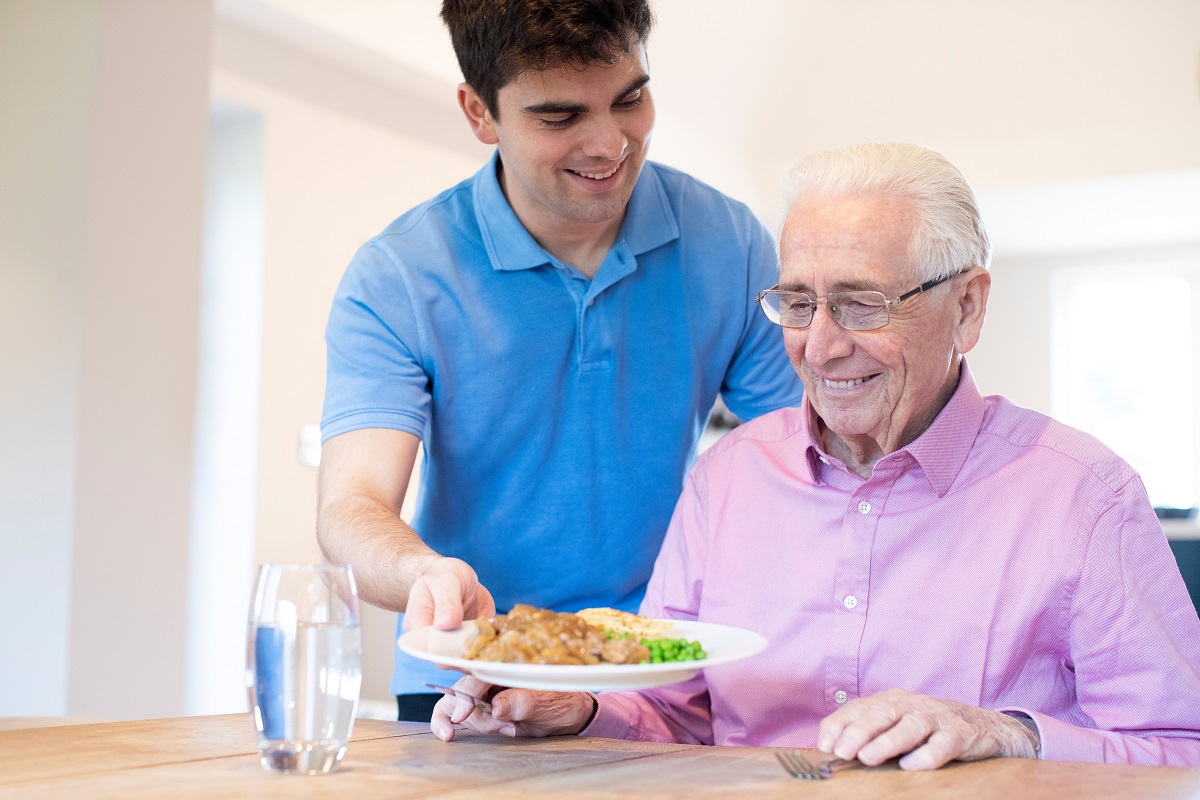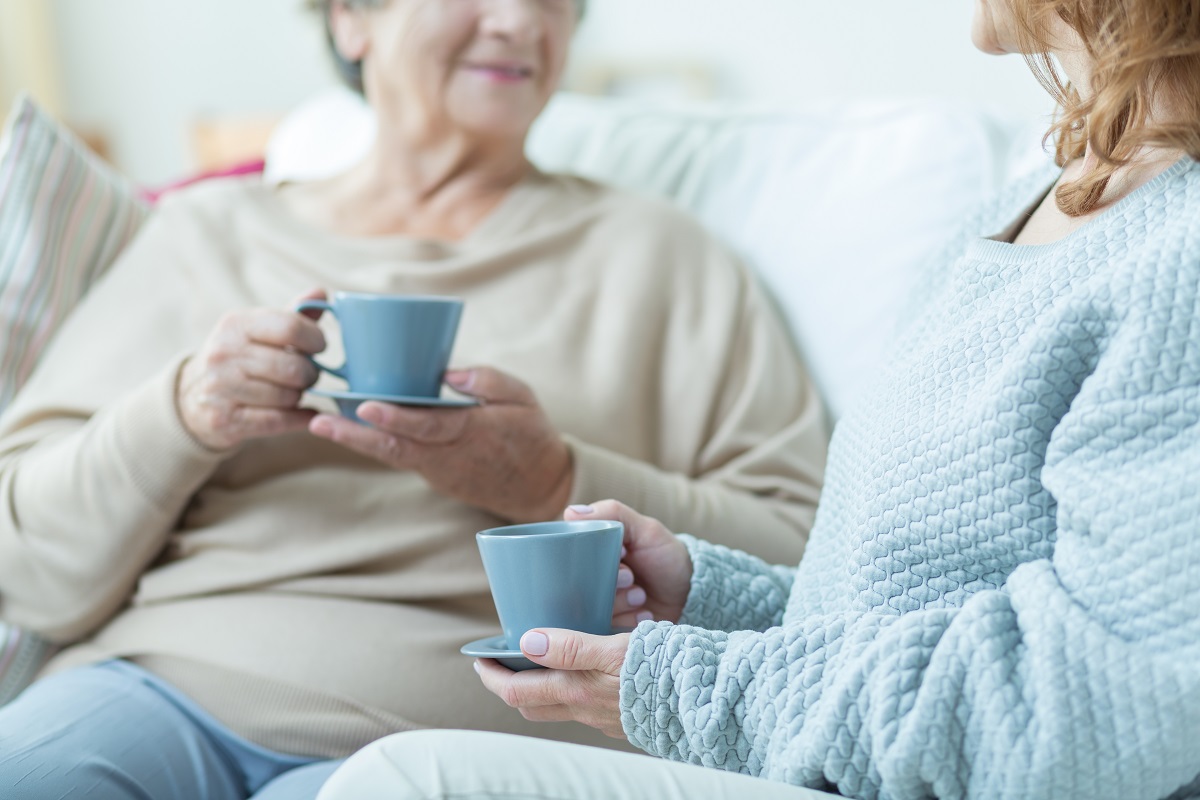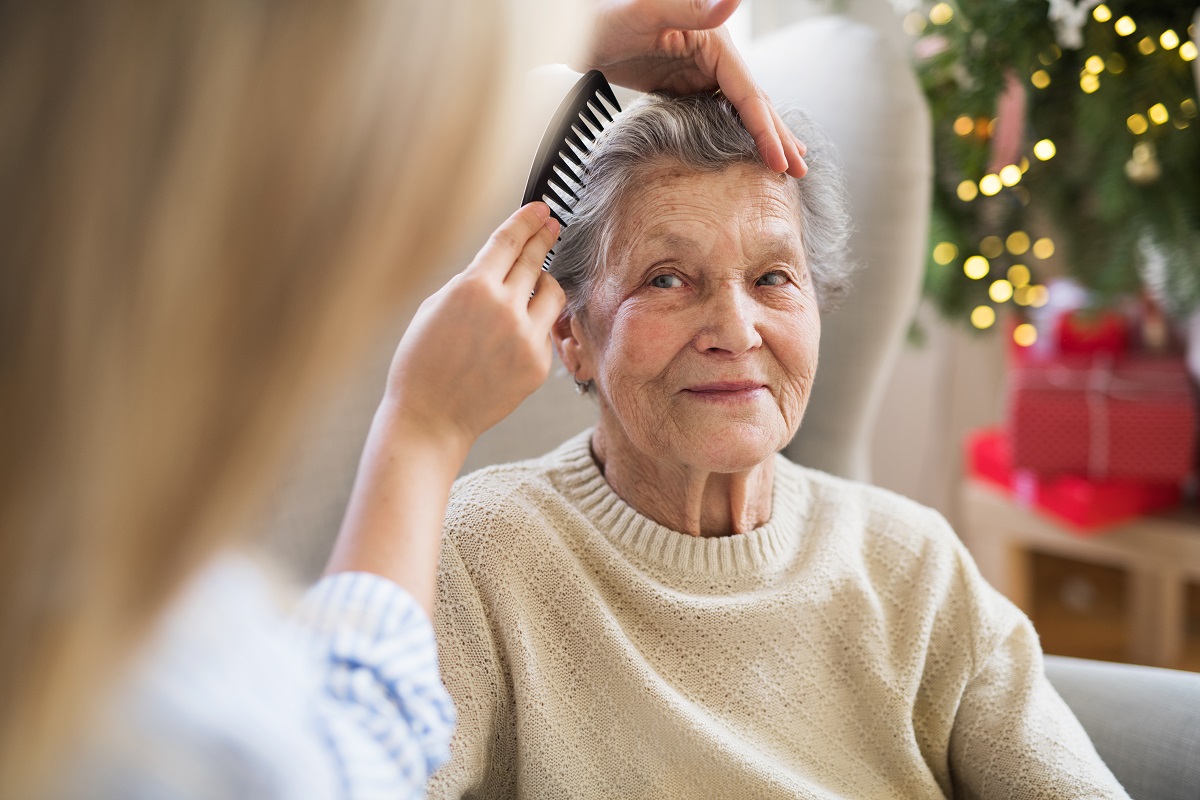How I help my grandma cope with dementia induced panic attacks

If a loved one with dementia has a panic attack, it can be difficult to know how to help. Here Jackie explains what caring for her grandmother has taught her
My grandmother is in her 80s and suffered a stroke a few years ago. As is the case with strokes, many times they are the precursors to other ailments, and in my grandma’s case it was dementia. The condition took a heavy toll on her emotional and mental health. Whilst most people are aware that dementia can cause depression, in my grandmother’s case, it also caused panic attacks that had a detrimental impact on her overall wellbeing.
In general, older people are prone to anxiety more than other age groups for multiple reasons – they suffer from more chronic conditions and pain, have experienced more losses and are often on multiple medications that might aggravate anxiety. So it’s exceedingly important to ensure that they keep up with a regular medication schedule and have a healthy and balanced diet.
After looking after my grandma, and handling her panic attacks with dementia, I have also observed that certain steps are more effective than others. Here’s what I’ve learnt to do:
1. Give reassurance in the midst of a panic attack
One of the mistakes you can make while trying to help a loved one during their panic attack is either to explain away their fears in the middle of the attack or tell them to stay calm. This will not work, in fact it can also exacerbate the situation – especially if they’re feelings of terror are overwhelming, their breathing is shallow and their heart is racing. I know that when my grandma is the midst of a panic attack, comforting and supportive phrases such as “we are in this together” or “you are going to be fine” can help. My grandma responds positively to hugs too – so do not underestimate the importance of physical contact like hugs or hand holding.
2. Identify reasons or triggers
When someone has dementia, panic attacks can often seem to come out of nowhere. However, in many cases, there is an immediate trigger that leads to the attack. Can you identify what’s making your loved one feel particularly anxious at this moment? If you can, you might be able to anticipate another attack, and even remove triggers so that it doesn’t happen again. For example, I have noticed that my grandma is more susceptible to panic attacks if she is alone in a dark room, which makes her confused and scared. Therefore, I ensure there is always a night light on in her bedroom, and that there is an abundance of sunshine and ventilation during the day. The ambience and decor of the house is kept bright, cheerful and positive.
TIP: Make a list of the factors that might be triggering panic attacks in your loved one. Could it be that they’re afraid something ‘bad’ is going to happen to them, or to someone else? Is it because they feel they’re going to be abandoned? Reassuring words and reminders that you are there for them can go a long way to ease their panic.
Do’s and Don’ts
DON’T take it personally
A deeper understanding of dementia-related panic attacks can help you to know why your loved one is affected, and to separate their condition from the person you love. Remember, what they do or say during a panic attack is not necessarily directed at you.
DON’T brush it off
If they suffer from irrational fears or hallucinations, do not treat it lightly. Show them you care by taking what they say seriously and investigating it. Feeling understood can help to calm and reassure them.
DO go outside
I have also seen that helping my grandma maintain social contact with the world around her, and making sure that she has some sort of physical activity during the day, is also beneficial and helps to lower the frequency and instances of panic attacks.
DO take care of yourself
Evaluate your own position as a carer. Caring for a person with dementia-induced panic attacks is difficult. It’s not unusual for family carers to experience feelings of fear, anger, guilt, inadequacy or frustration. Do not forget to look after yourself and consider your own wellbeing. Being in good health, emotionally, mentally and physically, will help you become a better carer to someone who suffers from anxiety and panic attacks. I have also realised it is important to avoid burnout otherwise not only will I not be able to care for my grandma, but I’ll also start developing a sense of resentment and negative attitude towards life in general. I know this isn’t helpful to me – and I know grandma would not want me to feel this way either.
Our Resources by Our Experts
Want to learn more about all things care industry? Check out our blog!

The Abel Label story: Clothing that maintains style and independence
Katie Ellis, founder of The Able Label a stylish range of assisted dressing clothing, tells us what made her decide to set up the brand and how she went about it.

Are you being ‘wrongly charged’ for care home costs?
Why do some people with dementia have to sell their homes to pay for care, whilst others find all their costs are paid for by the NHS? This week a hard-hitting documentary uncovered the shocking truth

Dealing with dementia: Day Clock Radio Ad
We’re advertising on the radio! Listen to our moving ads and find out the back story behind providing life-changing dementia products

A Day in the life of an Admiral Nurse
Amy Pepper is a Consultant Admiral Nurse based in the London Borough of Sutton. She shares what happens during a typical day and how she can help carers and families affected by dementia